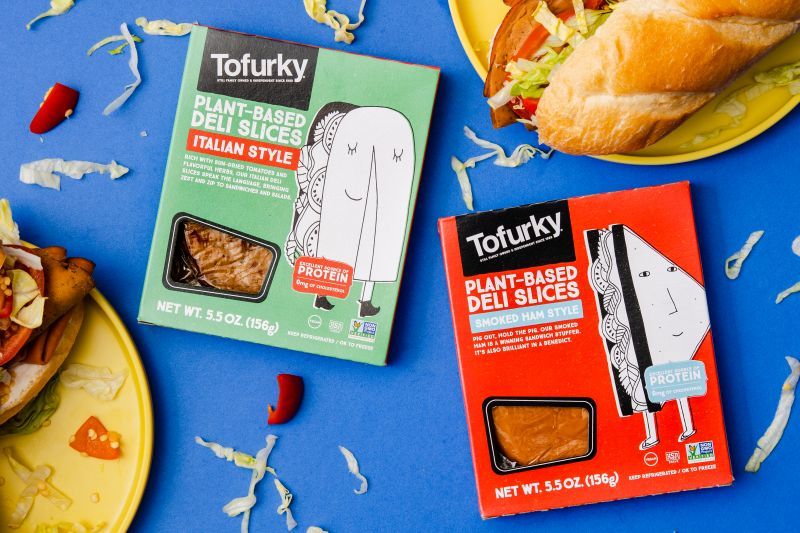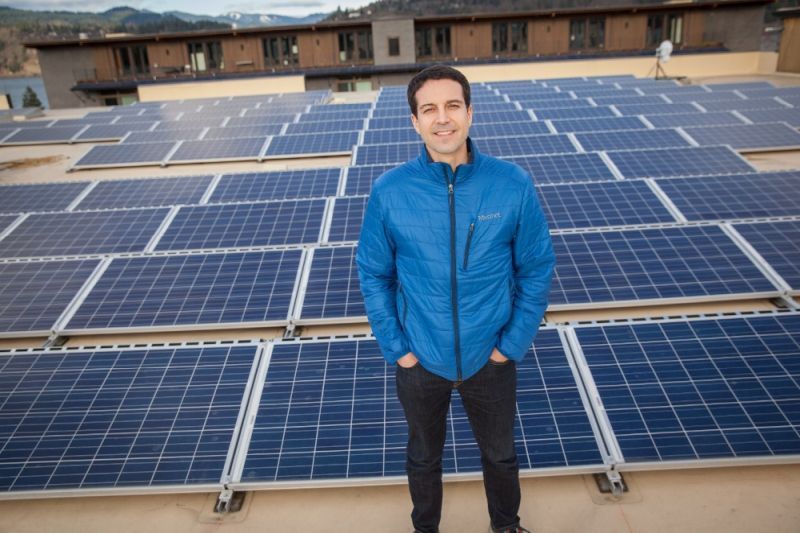Tofurky’s new owner Morinaga Nutritional Foods paid north of $50 million for the family-owned business, one of the leading players in the US meat alternatives market, AFN has learned.
Tofurky was recently acquired by its tofu supplier Morinaga Nutritional Foods (part of Toyko-based dairy company Morinaga Milk Group), alongside its parent and sister companies, Turtle Island Foods and Moocho respectively. Jaime Athos—the stepson of Turtle Island Foods founder Seth Tibbott—is staying on as CEO.
According to a notice from Morinaga announcing the deal, the ‘acquisition cost’ was $12.4 million.
However, the “purchase price was more than $50 million,” Athos told AFN: “We’re not really sure what that $12.4 million number is referring to. My speculation is that it has something to do with Morinaga’s internal accounting for the purchase.”
Before the pandemic, Athos said that Tofurky notched up net sales of $38.9 million in 2019. Sales leapt up to $46.9 million in 2020 as food consumption shifted to the home during the lockdown, before falling back to $42.4 million in 2021, he added.
Athos did not share 2022 top or bottom line numbers with us, but said Tofurky was “beating the category substantially,” which most recently has meant “our declines are smaller than those of our peers.” In a release about the acquisition, Tofurky claims it is the number three plant-based meat brand in the US.
The rationale behind the Morinaga deal
Asked why Tofurky had decided to sell to Morinaga, Athos noted that many plant-based CEOs “have had big checks waved in their face in recent years” and that Tofurky had also had its fair share of suitors.
“People saw it as a financial opportunity, and there was a bit of a gold rush mentality on both sides of the transactions,” he said.
“But there was a lack of what I’d call authentic interest. A lot of people just sensed there was a profit opportunity and wanted to get a piece of it. But they were not the right kind of partners for us. It’s like when the biggest names in meat rebranded themselves as protein companies, which to me lacked that ring of authenticity.”
“It seemed like a defensive move to demonstrate to shareholders that if plant-based takes some of our market share, we’ve at least got a foot in the door, but we can always step back,” he added.

Re-establishing international markets is high up the priority list
Morinaga, by contrast, has been a longstanding partner of Tofurky, supplying it with tofu for 17 years, said Athos, who has watched a string of legacy players in the alt meat/dairy space sell to financial or strategic acquirers, from Lightlife to Follow Your Heart, Quorn, and Daiya.
“We have been talking for a while, but Covid-19 created all kinds of supply chain and procurement challenges, especially for our international business. We had challenges around packaging. We were also caught off guard by the huge increases in gluten prices, first driven by Covid and then the war in Ukraine [which supplies a significant amount of wheat for the export market],” Athos told AFN.
“In the first year of Covid, gluten prices were up 50% and having to stomach another 50% on that [driven by the situation in Ukraine] for a really important commodity was a massive thing for a smaller company to take on.”
“We had a pretty strong business in Australia, New Zealand, the UK and other parts of Europe, and it all had to be pulled back. So re-establishing those international markets is definitely on the shortlist of near-term opportunities for us as Morinaga Nutritional Foods’ parent company Morinaga Milk is an international company with a global footprint,” he added.
Morinaga, in turn, “is looking for a partnership that could help it succeed even more in the US,” he said.
Synergies
As for product development, Morinaga has “food scientists and process engineers and a depth of capability we couldn’t match as a company of our size, so we hope to tap into that. They also have a lot of experience working with co-packers. We have some experience there, but 97% of our production is at our own plant in Hood River, Oregon,” he adds.
‘A lot of companies were losing, frankly, lots of money’
As for the wider category, he said, there’s no doubt that surging food inflation has made life tough for plant-based companies, which lack the scale to compete on price with conventional meat, prompting less engaged shoppers who dipped into the category during the lockdown to drop out again.
But in some cases, he claimed, demand for plant-based meat was artificially inflated through unsustainable promotional activity, while investors were throwing money at brands making unrealistic growth projections.
“When it was the gold rush around plant-based, some brands were making their topline numbers and losing, frankly, lots of money,” said Athos.
But as investors’ focus has shifted to profitability and some price supports have been removed, brands that are not compelling enough to stand on their own two feet are looking vulnerable, claimed Athos, who predicts consolidation in the sector in the coming year.
So does he share the view that the alternative meat market can only smash through the natural ceiling it’s hit by developing more highly engineered products ‘meaty’ enough to convert meat lovers?
“I’ve been reading the same things,” said Athos. “What I hear in those stories is a persistent focus on technology because those are the stories that are compelling to investors, who are always looking for the next thing.”
But consumers aren’t buying technology, they’re buying food, he said. And while tech is being deployed at every level in this business, companies are still building consumer brands, a point reiterated by alternative protein investor Dan Altschuler Malek at a recent industry event.
Consolidation ahead in meat alternatives
Retailers, meanwhile, are reducing their assortments to remove slow sellers that were likely not ready for prime time when they launched, he added.
“You had brands paying slotting fees to get on shelves as a path to rapid growth and they figured some would stick; well, that’s not really doing much of a service to the consumer.”
Looking ahead, there’s likely to be some consolidation in the sector, he predicted. “As much as it’s painful, it’s probably a healthy thing in the long run.”
‘Retailers are still trying to understand how best to merchandise plant-based products’
Retailers remain committed to the category, “but they’re still trying to understand how best to merchandise plant-based products,” he said. “The adjacency strategy for merchandising products next to their animal counterparts, as we’ve seen in the dairy aisle, has been proven to boost plant-based sales and raise their exposure, especially to curious but uninformed consumers.
“But does it make sense from an overall P&L standpoint for the store or for that department? The expectations of dollars per square inch in the meat case are very high, so I think that’s what a lot of retailers are evaluating right now.”
‘I see a lot of potential in algae and fungi’
So what’s next for meat alternatives? Is reverse engineering animal products to ever more precisely mimic their taste and texture the secret to reversing declining sales?
There’s room in the market for multiple approaches, according to Athos, who said Tofurky has historically relied on soy and wheat as its go-to proteins but is now exploring a broader toolbox of ingredients.
“I see a lot of potential in algae and fungi,” said Athos. “Although for fungi, I haven’t seen any knock-it-out-of-the-park successes in terms of consumer products. But I think the potential is there.”
Companies using solid-state fermentation to make minimally-processed hybrid products combining, say, grains or legumes and fungi are also interesting to Athos.
“As a food geek, one reason I’m compelled by mycelium is that it tends to be lipophilic; it likes binding with fats. And within the industry we’ve recognized we’ve got a juiciness problem, so I think there’s a lot of potential there.”

Further reading:





